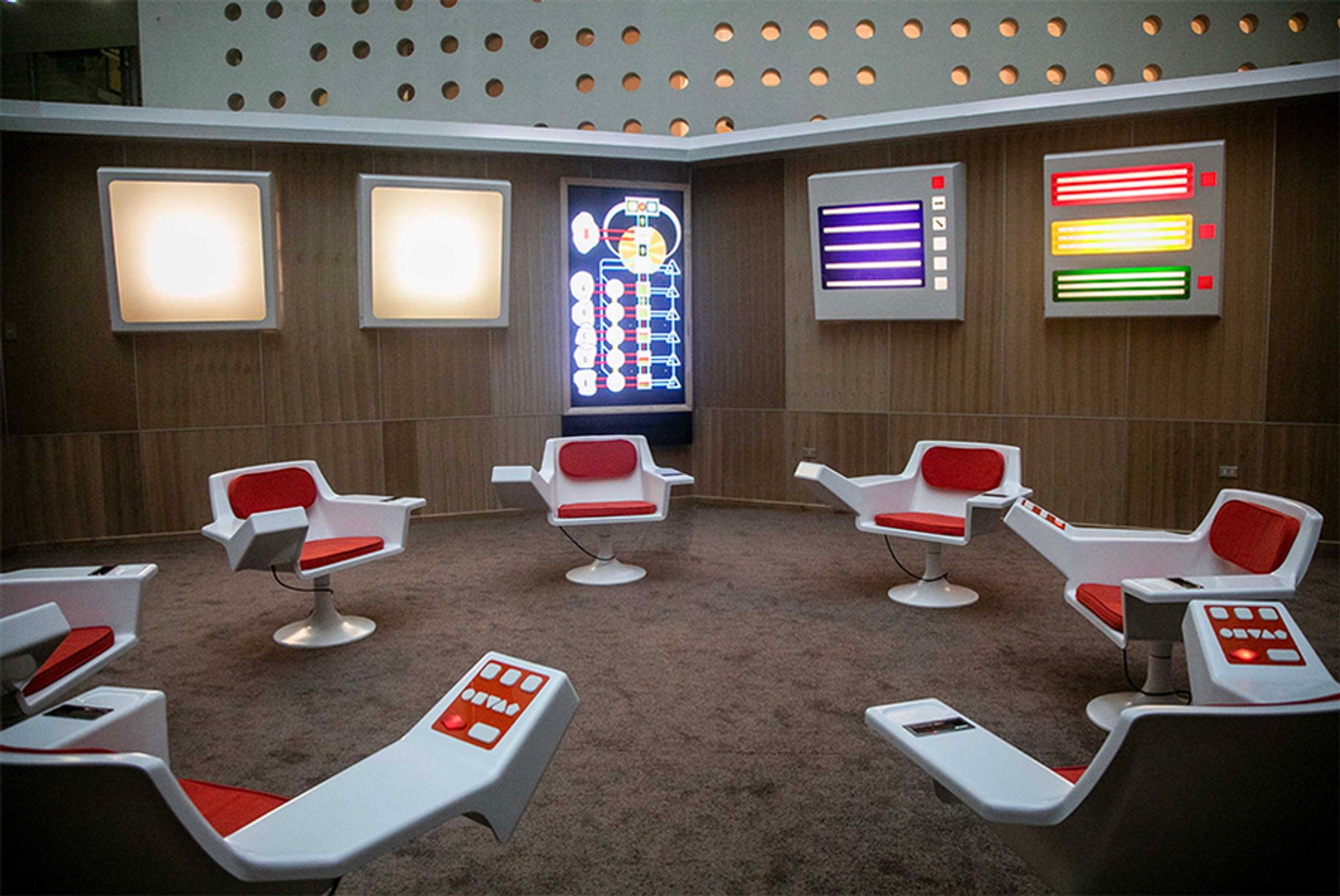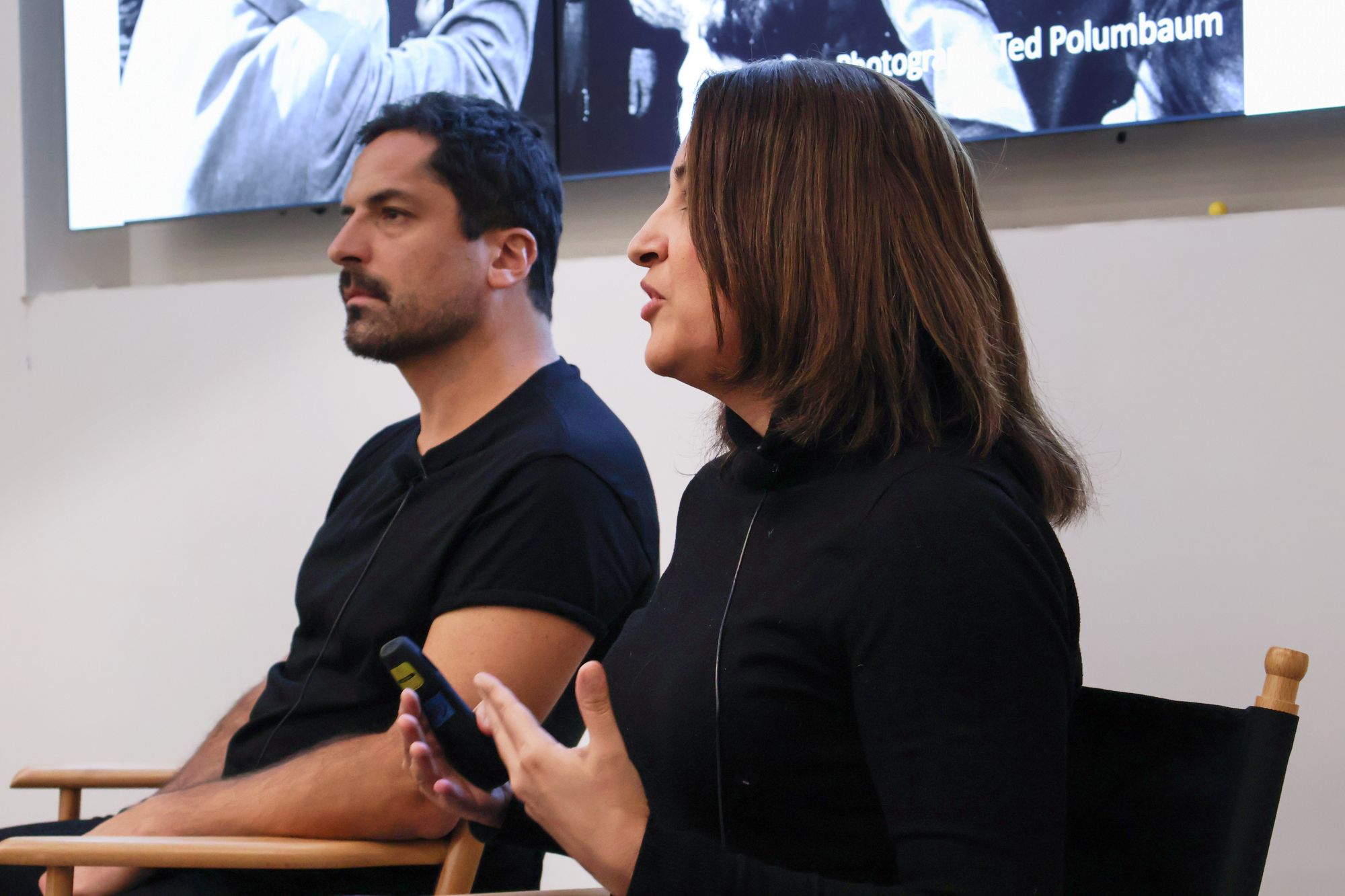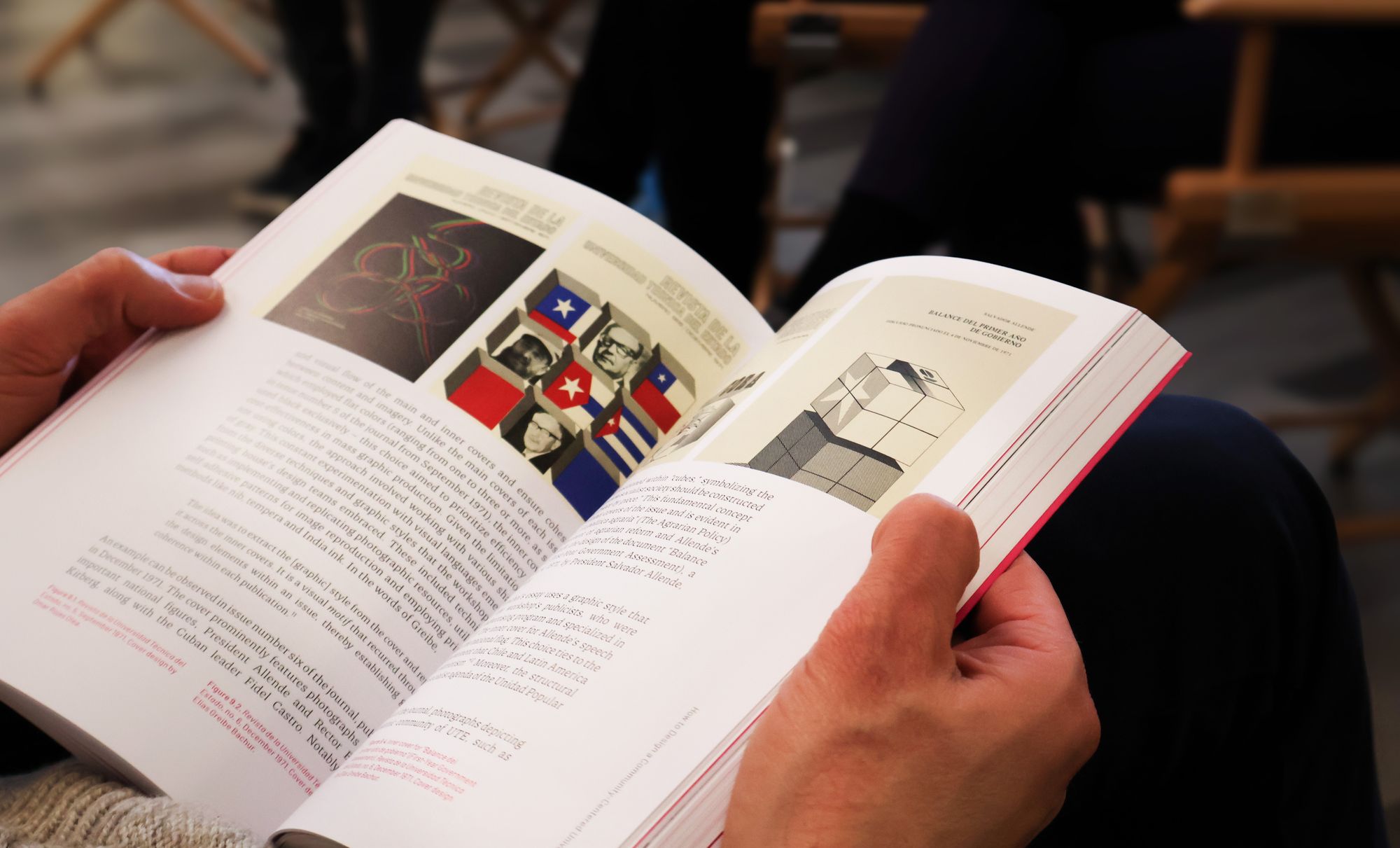Text from Lars Müller Publishers
A bold project for change unfolded in Latin America at the beginning of the 1970s. After an electoral victory in Chile, the socialist government led by Salvador Allende and his governing coalition, Unidad Popular, embarked on a mission to bring about a socialist revolution through existing democratic institutions to address the most pressing needs of the Chilean people. The result was an unprecedented alliance of socialism, democracy and design.
The book by Hugo Palmarola, Eden Medina, and Pedro Ignacio Alonso, provides the most complete analysis of the graphic and industrial design projects developed during Salvador Allende’s presidency. The book’s twelve chapters tell some of the most remarkable histories of this innovative design experience, including histories of the powdered milk measuring spoons designed to combat child malnutrition, the posters that encouraged collective action and a state-of-the-art operations room built to manage Chile’s state-run industries. Through these and other projects we see how Chile’s designers worked to create a path to social and material justice.
Fifty years after the civil-military coup d’état that put an end to democracy in Chile, and with it these design initiatives, the book provides a reminder of Latin America’s transformative capacity and a source for reflection and creative inspiration.
Hugo Palmarola
Hugo Palmarola is associate professor in the School of Design at the Pontifi cia Universidad Católica de Chile and holds a PhD in Latin American Studies from UNAM Mexico. He was curator and editor of “Flying Panels: How Concrete Panels Changed the World” at ArkDes Stockholm, and “Monolith Controversies Pavilion of Chile” at the 14th Venice Architecture Bienniale.
Eden Medina
Eden Medina is a historian of science and technology and a professor in the MIT Program for Science, Technology, and Society. She is the author of “Cybernetic Revolutionaries: Technology and Politics in Allende’s Chile” and coeditor of “Beyond Imported Magic: Essays on Science, Technology, and Society in Latin America.”
Pedro Ignacio Alonso
Pedro Ignacio Alonso is associate professor in the School of Architecture at the Pontificia Universidad Católica de Chile and head of the PhD Program in Architecture, Design, and Urban Studies. He was curator and editor of “Flying Panels: How Concrete Panels Changed the World” at ArkDes Stockholm and “Monolith Controversies: Pavilion of Chile” at the 14th Venice Architecture Bienniale.
Online registration for the Book Launch is available until March 10. Onsite registration will also be available.
REGISTER HERE
No registration needed for the video installation.
Publisher: Lars Müller Publishers
Edited by Hugo Palmarola, Eden Medina, Pedro Ignacio Alonso
Design: Yazmín Jiménez
16,5 × 24 cm, 6 ½ × 9 ½ in
336 pages, 403 illustrations
paperback
2024, 978-3-03778-733-5, English
This event has been made possible through the collaboration and support of the MIT Morningside Academy for Design (MAD); MIT Program in Science, Technology, and Society; MIT School of Humanities, Arts, and Social Sciences (SHASS); MIT International Science and Technology Initiatives (MISTI); MIT School of Architecture and Planning; MIT Department of Architecture; Lars Müller Publishers; Centro Cultural La Moneda; Pontificia Universidad Católica de Chile; Ministerio de Ciencia, Tecnología, Conocimiento e Innovación de Chile; and Fundación Imagen de Chile.
Our events are enriched by your presence and we are committed to making them accessible.
Please email us at [email protected] to request accommodations.
*Cover image adapted from the poster Convenio SERMENA-SNS ¡Un gran paso adelante! (Agreement SERMA-SNS A Major Step Forward!) by Waldo González and Mario Quiroz, 1973. Archive of Originals, Faculty of Architecture, Design and Urban Studies, Pontificia Universidad Católica de Chile.




